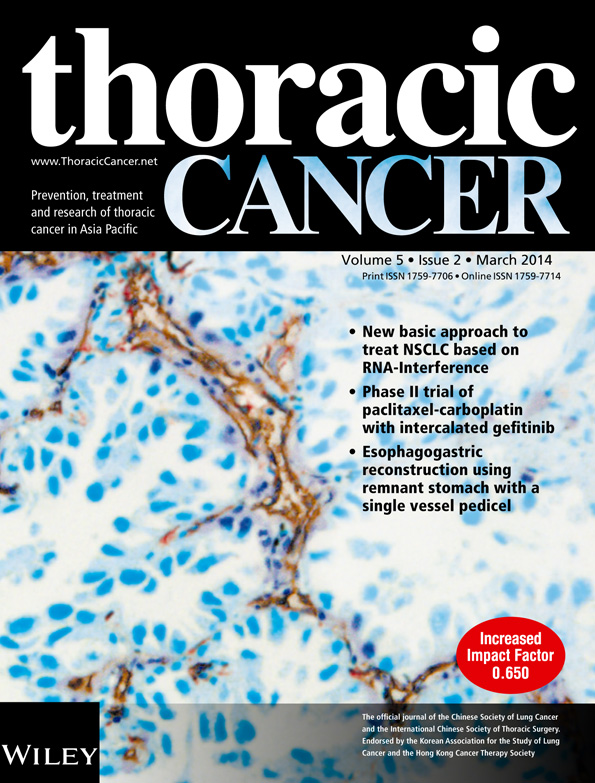Docetaxel-based chemotherapy as second-line regimen for advanced thymic carcinoma
Abstract
Thymic carcinoma is an uncommon neoplasm. The efficacy of second-line treatment with docetaxel in advanced thymic carcinoma has not been well studied. Therefore, we conducted a review of the efficacy of docetaxel-based chemotherapy as a second-line regimen for advanced thymic carcinoma. Fifteen patients with advanced thymic carcinoma who received second-line chemotherapy with docetaxel singlet or docetaxel/platinum combination chemotherapy regimens were retrospectively reviewed. There were 11 males and four females, with a median age of 53 years. Squamous cell carcinoma was most common (n = 10), followed by undifferentiated carcinoma (n = 4), and small cell carcinoma (n = 1). Eight patients received docetaxel/platinum combination chemotherapy and seven docetaxel mono-therapy. Four patients showed partial responses, representing a response rate of 26.7%. The median progression-free survival and overall survival in the 15 patients were 4.0 (2.8–5.2) and 22.0 (14.6–29.4) months, respectively. There was no difference in progression-free survival between the docetaxel singlet or docetaxel/platinum combination chemotherapy (3.5 months vs. 4.0 months, P = 0.889). A docetaxel-based regimen could be a potential therapeutic option as a second-line chemotherapy for advanced thymic carcinoma.




